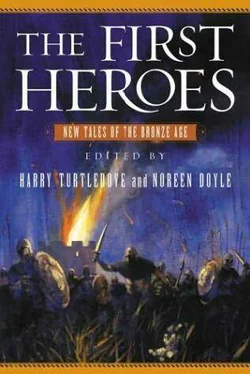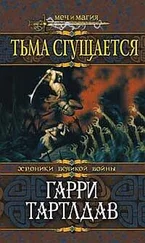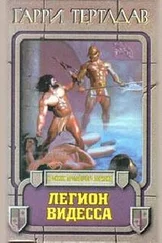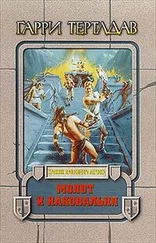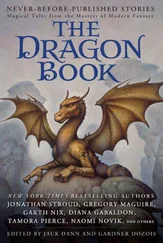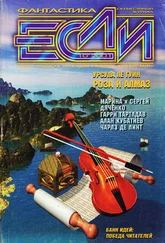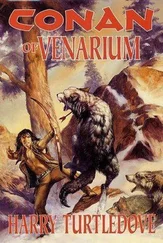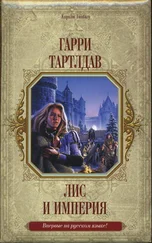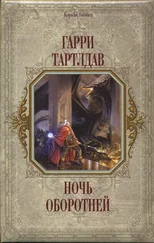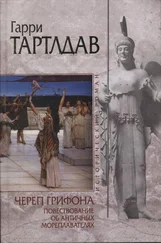Гарри Тертлдав - The First Heroes
Здесь есть возможность читать онлайн «Гарри Тертлдав - The First Heroes» весь текст электронной книги совершенно бесплатно (целиком полную версию без сокращений). В некоторых случаях можно слушать аудио, скачать через торрент в формате fb2 и присутствует краткое содержание. Жанр: Фантастика и фэнтези, на английском языке. Описание произведения, (предисловие) а так же отзывы посетителей доступны на портале библиотеки ЛибКат.
- Название:The First Heroes
- Автор:
- Жанр:
- Год:неизвестен
- ISBN:нет данных
- Рейтинг книги:3 / 5. Голосов: 1
-
Избранное:Добавить в избранное
- Отзывы:
-
Ваша оценка:
- 60
- 1
- 2
- 3
- 4
- 5
The First Heroes: краткое содержание, описание и аннотация
Предлагаем к чтению аннотацию, описание, краткое содержание или предисловие (зависит от того, что написал сам автор книги «The First Heroes»). Если вы не нашли необходимую информацию о книге — напишите в комментариях, мы постараемся отыскать её.
The First Heroes — читать онлайн бесплатно полную книгу (весь текст) целиком
Ниже представлен текст книги, разбитый по страницам. Система сохранения места последней прочитанной страницы, позволяет с удобством читать онлайн бесплатно книгу «The First Heroes», без необходимости каждый раз заново искать на чём Вы остановились. Поставьте закладку, и сможете в любой момент перейти на страницу, на которой закончили чтение.
Интервал:
Закладка:
"I am Geraint," he answered. "I am a man"—a word I had not heard before. He looked at my companions and me. "I will ask you the same questions, and where you are from, and why you have come here."
I told him who I was, and named my kind as well. He listened attentively, his eyes—eyes gray as the seas thereabouts—alert. And I told him of our desire for tin, and of how we had come from the lands around the Inner Sea to seek it.
He heard me out. He had a cold courtesy much in keeping with that windswept plain. When I had finished, he threw back his head and laughed. If I needed it, I could have brought up my axe very quickly. "Do you think I jest?" I asked. "Or do you aim to insult me? If you want a quarrel, I am sure we can oblige you."
Geraint shook his head. "Neither, although we will give you all the fight you care for if that is what you want. No, I am laughing because it turns out those funny little digging things were right after all."
"You mean the nuggies?" I asked.
Now he nodded. «fYes, them," he said indifferently. "I thought they dug because they were things that had to dig. But there really is a market for tin in this far corner of the world that has none of its own?"
"There is," I said. "We have trade goods back at the Horse of Bronze, our ship. We will pay well."
"Will you?" He eyed me in a way I had never seen before: as if I had no right to exist, as if my standing there on four hooves speaking of trade were an affront of the deadliest sort. Worse was that, when I looked into those oceanic eyes, I more than half believed it myself.
Oreus, always quick to catch a slight, saw this perhaps even before I did. "I wonder if this man-thing has any blood inside it, or only juice like a gourd," he said.
Geraint should not have been able to follow that. He should not have, but he did. His eyes widened, this time in genuine surprise. "You are stronger than the nuggies," he said. "Do any of them yet live?"
"Yes," I said, not mentioning that we had seen only Bucca. "Will you trade tin with us? If not, we will try to mine it ourselves." I did not look forward to that. We had not the skills, and the nuggies' shafts would not be easy for folk with our bulk to negotiate.
But Geraint said, "We will trade. What do you offer?"
"We will trade what we have always sent north in exchange for tin," I answered. "We will give you jewelry of gold and precious stones. We will give olive oil, which cannot be made here. We will give wheat flour, for fine white bread. Wheat gives far better bread than barley, but, like the olive, it does not thrive in this northern clime." I was sure the olive would not grow here. I was less sure about wheat, but Geraint did not need to know that.
"Have you wine?" Geraint asked. "If you have wine, you may be sure we will make a bargain. Truly wine is the blood of the gods." The mans with him nodded.
"We have no wine," I said. "We did not bring any , for it is not to the nuggies' taste." That was true, but it was far from the only reason we had no wine. I said not a word of any other reasons. If Geraint wanted to ferret out our weaknesses, he was welcome to do so on his own. I would not hand them to him on a platter.
I wondered what weaknesses the mans had. Seeing him there, straight and erect and godlike in his all-of-one-pieceness, I wondered if mans had any weaknesses. Surely they did. What those weaknesses might be, though, I had no idea. Even now, I am less certain of them than I wish I were.
I said, "You must leave off killing the nuggies who grub the tin from the ground. They have done you no harm. That will be part of the bargain."
One of the mans with Geraint did not understand that. He repeated it in their language, which I could follow only in part. I did not think he turned it into a joke or a bit of mockery, but the mans laughed and laughed as if it were the funniest thing in the world. To me, he said, "You misunderstand. We did not kill the nuggies and the other folk hereabouts. They see us, and then they commonly die."
"Of what?" I asked.
He told me. I was not sure I followed him, and so I asked him to say it again. He did: "Of embarrassment."
I refused to show him how much that chilled me. These mans embarrassed me, too, merely by their existence. I thought of Bucca, who was somehow tougher than his fellows. I wondered who among us might have such toughness. I was not sorry these mans dwelt so far from our homeland.
Another question occurred to me: "Did you make this great stone circle?"
"We did," Geraint answered.
"Why?" I asked.
I thought he would speak to me of the gods these mans worshiped, and of how those gods had commanded his folk to make the circle for some purpose of their own. I would not have been surprised that he and the other mans had no idea what the purpose was. That is often the way of gods: to keep those who revere them guessing, that they themselves might seem the stronger. And I would not have been surprised to hear him say right out that the purpose of the circle was to bring a bane down upon the other folk dwelling in those parts.
But he answered in neither of those ways. And yet his words did surprise me, for he said, "We raised this circle to study the motions of the sun and moon and stars."
"To study their motions?" I frowned, wondering if I had heard rightly and if I had understood what I heard.
Geraint nodded. "That is what I said, yes."
I scratched my head. "But . . . why?" I asked. "Can you hope to change them?"
He laughed at that. "No, of course not. Their motions are as the gods made them."
"True," I said, relieved he saw that much. These mans were so strange, and so full of themselves, he might easily have believed otherwise. "This being so, then, what is the point of, ah, studying these motions?"
"To know them better," Geraint replied, as if talking to a fool or a foal.
For all his scorn, I remained bewildered. "But what good will knowing them better do you?" I asked.
"I cannot tell you. But knowledge is always worth the having." Geraint spoke with great conviction. I wondered why. No sooner had I wondered than he tried to explain, saying, "How do you know you need tin to help harden copper into bronze? There must have been a time when folk did not know it. Someone must have learned it and taught it to others. There must have been a time when folk did not know of wonderful wine, either, or of this fine wheat flour you brag you have brought to trade. Someone must have learned of them."
His words frightened me more even than his appearance. He carved a hole in the center of the world. Worse yet, he knew not what he did. I said, "Assuredly the gods taught us these things."
His laugh might have been the embodiment of the cold wind blowing across that cold plain. "No doubt the gods set the world in motion," he said, "but is it not for us to find out what rules they used when they did it?"
"Gods need no rules. That is why they are gods," I said.
"There are always rules." Geraint sounded as certain as I was. "At the winter solstice, the sun always rises in the same place." He pointed to show where. "At the summer solstice, in another place, once more the same from year to year." He pointed again. "The moon likewise has its laws, though they are subtler. Why, even eclipses have laws."
He was mad, of course, but he sounded very sure of himself. Everyone knows eclipses show the gods are angry with those whose lands they darken. What else could an eclipse be but the anger of the gods? Nothing, plainly. Quarreling with a lunatic is always a risky business, and all the more so in his own country. I did not try it. Instead, I answered, "Let it be as you say, friend. Will you come back to the Horse of Bronze and trade tin for our goods?"
"I will," he answered, and then smiled a very unpleasant smile. "We are many in this land—more all the time. You are few, and no more of your kind will come any time soon. Why should we not simply take what we want from you?"
Читать дальшеИнтервал:
Закладка:
Похожие книги на «The First Heroes»
Представляем Вашему вниманию похожие книги на «The First Heroes» списком для выбора. Мы отобрали схожую по названию и смыслу литературу в надежде предоставить читателям больше вариантов отыскать новые, интересные, ещё непрочитанные произведения.
Обсуждение, отзывы о книге «The First Heroes» и просто собственные мнения читателей. Оставьте ваши комментарии, напишите, что Вы думаете о произведении, его смысле или главных героях. Укажите что конкретно понравилось, а что нет, и почему Вы так считаете.
